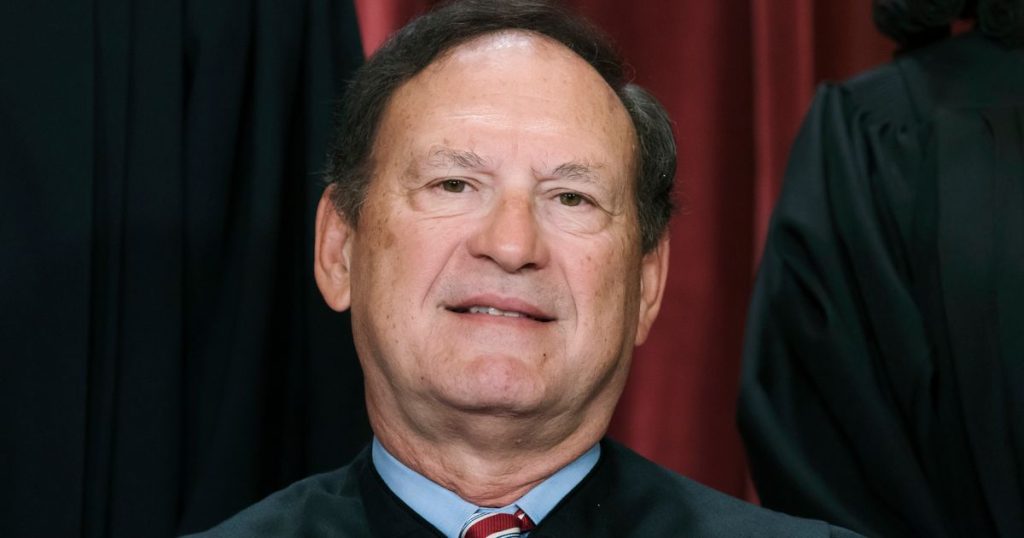U.S. Supreme Court Justice Samuel Alito made comments at a private event suggesting that the political divide between the left and the right would be difficult to bridge, with one side ultimately prevailing. The remarks were secretly recorded by documentarian and journalist Lauren Windsor, who engaged in discussions with Alito and Chief Justice John Roberts. Alito acknowledged the challenges of finding common ground with the left due to fundamental differences that may be irreconcilable. Windsor emphasized the need for those who believe in God to fight for a return to a more godly country, which Alito agreed with.
Alito has faced backlash over reports that flags associated with the January 6th insurrection were flown at his residences, but he has refused to recuse himself from related cases before the court. The release of the recordings has raised ethics concerns about the justices’ impartiality. Windsor’s conversations with Roberts were contentious, with the chief justice asserting that it is not the role of the courts to dictate the nation’s moral path. He also disputed the notion of America being a Christian nation, highlighting the diversity of religious beliefs in the country.
Windsor, who concealed her identity as a journalist during the event, believed that secretly recording the justices was necessary to reveal their unfiltered opinions. She criticized the lack of transparency and accountability within the court, prompting her undercover investigation. The Supreme Court Historical Society, which hosted the event, portrays itself as nonpartisan and dedicated to preserving the court’s history. However, it has faced scrutiny for its ties to influential individuals and organizations that may influence its activities. The organization has been accused of serving as a vehicle for lobbying and influence-peddling efforts.
The recordings shed light on the philosophical differences and challenges within the Supreme Court, particularly regarding political polarization and moral values. Alito’s refusal to recuse himself from cases involving the insurrection and former President Trump has sparked controversy and raised questions about judicial ethics. Windsor’s interactions with the justices revealed contrasting views on the role of the court in shaping the nation’s morality and the diversity of religious beliefs in the United States. The release of the recordings has sparked debate about transparency and accountability within the judiciary and the influence of external interests on the court’s decision-making process.


